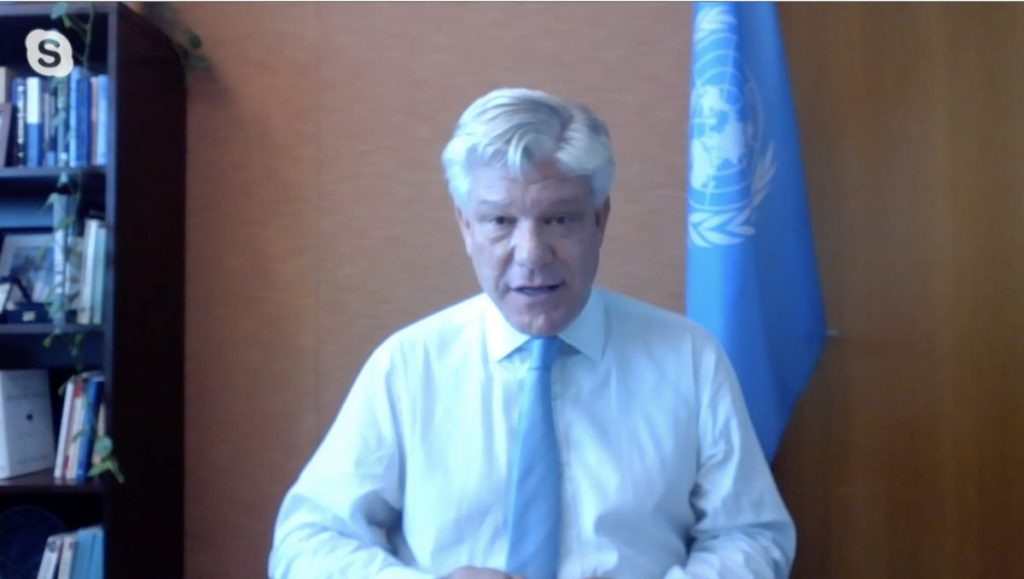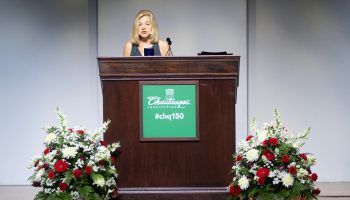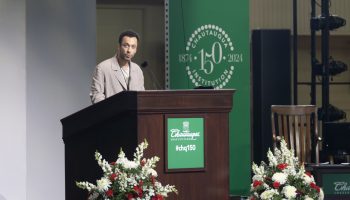
Special Adviser to the Secretary-General of the United Nations Fabrizio Hochschild said the news media has covered in depth the life-threatening, physical effects of COVID-19, but the amount of people whose mental health has been impacted is much larger.
Mental and emotional vulnerabilities come with being isolated, and many have been forced to stay in abusive households — not to mention the number who have lost their jobs, and the countless people who have needed to change their daily lives.
“Just about everybody has been subjected to the growth of uncertainty and anxiety about the future. All these are massive stresses on mental health that don’t get the attention that they deserve,” Hochschild said. “I’m afraid they will be with many of us long after we’ve discovered a vaccine.”
Hochschild hopes that the pandemic will make society more empathetic and “drop this awful, macho … approach to expressing vulnerability when it comes to mental health.”
“None of us feel inappropriate when it comes to our physical health, none of us have a problem confessing to a stomachache or a backache,” Hochschild said. “Yet, we have this terrible trend not even to acknowledge the worst depression or major anxiety disorder.”
At 10:45 a.m. EDT Tuesday, Aug. 27, 2020, on the CHQ Assembly Video Platform, Hochschild gave a presentation titled “UN75 and the Future of International Cooperation,” as part of Week Nine of the Chautauqua Lecture Series themed “The Future We Want, The World We Need: Collective Action for Tomorrow’s Challenges,” in partnership with the U.N. Foundation. Hochschild discussed the UN75 initiative, the common desire for greater international communication and the importance of empathy in the reckoning brought about by the COVID-19 pandemic.
The discussion was led by Matt Ewalt, vice president and Emily and Richard Smucker Chair for Education, who asked about Hochschild’s work to commemorate the 75th anniversary of the U.N., and how that anniversary has been framed.
“There’s a sense, even before COVID struck, that we were facing this contradiction between a growing number of challenges that can only be resolved through international cooperation, and the flagging commitment to the mechanisms of international cooperation,” Hochschild said.
In order to reverse this contradiction of the growing global issues and declining interest in cooperation, the U.N. wants to inspire the people it serves, and reinvigorate the international organization.
Ewalt asked him to speak on the current state of global cooperation. One example, Hochschild said, is the U.N. Security Council.
“According to some permanent members sitting on their council, they haven’t seen it as dysfunctional, as unable to reach agreement, at any time since the Cold War,” Hochschild said. “That’s a pretty tough statement.”
The conflict in Syria, which has killed hundreds of thousands and displaced millions, is “perhaps the most painful and tragic indication” of a lack of global cooperation. Hochschild said that the U.N. Security Council has become more fragmented on these large issues that are more visible to the public, but also on issues that the majority of the council historically agreed on.
“The last climate summit in Madrid, presided over by my own country, Chile, in the diplomatic words of many U.N. members, was really an abject failure,” Hochschild said.
The COVID-19 pandemic showed more of this lack of coherence, and that creating fractures instead of bridges has very immediate consequences, such as widespread death.
Ewalt asked about UN75, and the initiative’s efforts to learn millions of people’s hopes and fears about the future, and the focus on inviting people to discuss priorities for the future.
Hochschild said the project has focused on reaching young people in as many parts of the world as possible. He said the initiative has partnered with organizations such as the Boy Scouts of America and platforms like Facebook, in order to reach a wider audience, and has currently reached millions across all 193 countries.
Hochschild said despite growing political divisions, there are common hopes to strengthen global cooperation.
“What is very striking in the results we’ve achieved so far … is that there is a remarkable amount of unity across political divides, across generation groups, across genders and across continents, around what people’s fears and hopes are for the future,” Hochschild said. “Maybe we should tap in more to those and build more on (them).”
Ewalt asked what people should think about in the coming months in terms of prioritizing international cooperation.
Hochschild said the pandemic and growing global dysfunction may bring changes to educational systems. He gave an example of how some educational experts have argued that children should be taught programming instead of literature, but they eventually found that most programming would be done by artificial intelligence in 10 years.
“There’s a lot of confusion about what this brave new era means for education, but I think (it’s important to be) coping with uncertainty, coping with change and building resilience,” Hochschild said, “not the sort of silly macho resilience that I was taught about, bottling up one’s feelings and always showing a brave face.”




